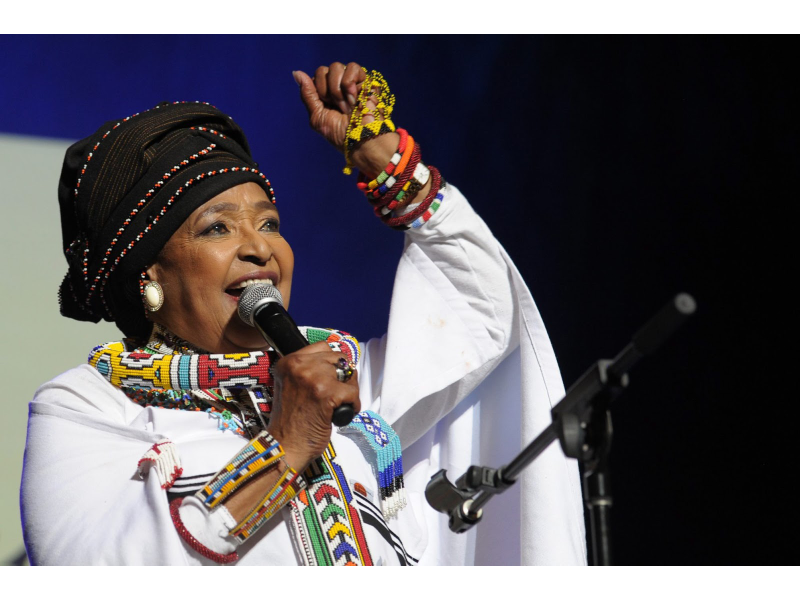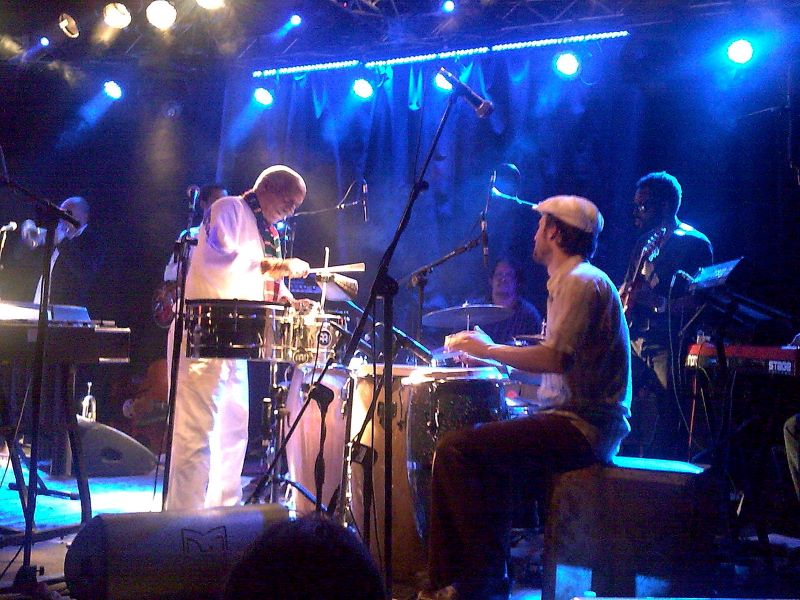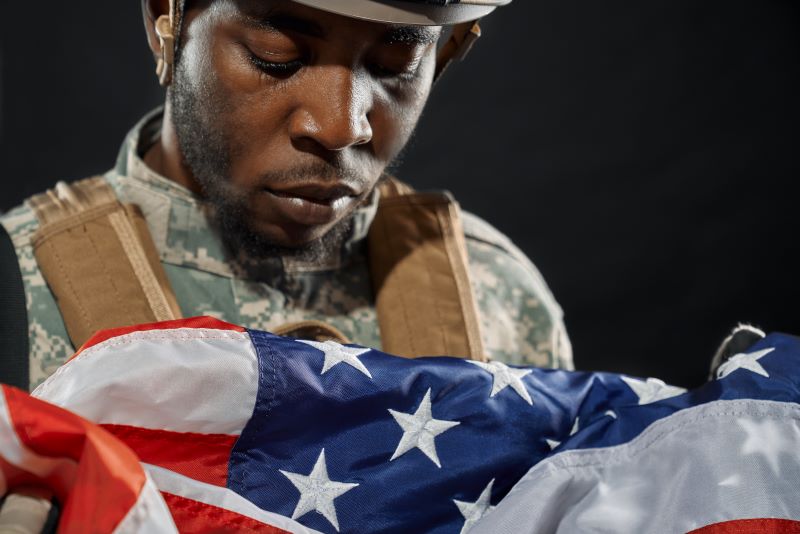Nomzamo Winifred Zanyiwe Madikizela was born in the village of Mbongweni in the Eastern Cape, South Africa on September 26, 1936, as one of nine children. Her father was the minister of the Transkei Governments’ Forestry and Agriculture Department and her mother was a science teacher. Sadly, both her mother and elder sister died of tuberculosis.
In 1953, upon her father’s advice, Winnie was admitted to the Jan Hofmeyr School of Social Work in Johannesburg and earned a degree in pediatric social work in 1956. Madikizela was offered a scholarship for further study in the United States but turned it down to work as the first Black medical social worker at Baragwanath Hospital in Johannesburg. She met the lawyer and anti-apartheid activist Nelson Mandela in 1957 and became his second wife in 1958. The Mandela’s residence in Soweto became a place of frequent police raids due to both of their activism against the apartheid regime.
Madikizela-Mandela gave birth to their first daughter in 1958, Zenani, and gave birth to Zindziwa in 1960. Sadly, their father was arrested in 1961 and sent to life imprisonment in 1964 at the notorious Robben Island prison, leaving Madikizela-Mandela to raise their two small daughters. She continued working to end apartheid, working in the African National Congress (ANC), and sent her children to boarding school in the neighboring country, Swaziland to offer them a more peaceful upbringing.

Due to her political activities, Madikizela-Mandela was regularly detained by the apartheid government. She even spent a year in solitary confinement, where she was tortured, when she was arrested under the Suppression of Terrorism Act. In 1977, Madikizela-Mandela was exiled and it wasn’t until 1985 that she was allowed to move back to her home in Soweto, Johannesburg. While in exile in Brandfort in the Free State, she established a local gardening collective, a soup kitchen, a mobile health unit, and a daycare center.
When she returned to Soweto, Madikizela-Mandela took a more militaristic approach and began dressing in military garb, which went against the stance of the ANC, and this put a strain on her marriage. Through a mix of domestic political maneuvering and international outrage, Mandela was freed in 1990 and became South Africa’s first democratic president in 1994, making Madikizela-Mandela the country’s first democratic First Lady. She was also elected Deputy Minister of Arts, Culture, Science, and Technology in South Africa’s first multiracial government.

Due to the years of separation, the Mandela’s marriage was damaged and the two separated in 1992 and divorced in 1996. Madikizela-Mandela continued to campaign for issues she strongly believed in. In 2003, she offered to act as a human shield prior to the invasion of Iraq and was one of the influential voices demanding free antiretrovirals for HIV patients in the 2000s. In 2016, Madikizela-Mandela received the award of the Silver Order of Luthuli for her contributions to the liberation struggle during the apartheid era.
On April 2, 2018, after a long illness, Madikizela-Mandela passed away at the age of 81. Her life and legacy were honored with a televised memorial service and a state funeral, held on April 14 at Orlando Stadium in Soweto. Madikizela-Mandela’s life has often been the subject of books and films. She was played by actress Alfre Woodard in the 1987 television movie Mandela, and by Jennifer Hudson in the 2011 film Winnie.
Source

Boitumelo Masihleho is a South African digital content creator. She graduated with a Bachelor of Arts from Rhodes University in Journalism and Media Studies and Politics and International Studies.
She’s an experienced multimedia journalist who is committed to writing balanced, informative and interesting stories on a number of topics. Boitumelo has her own YouTube channel where she shares her love for affordable beauty and lifestyle content.





